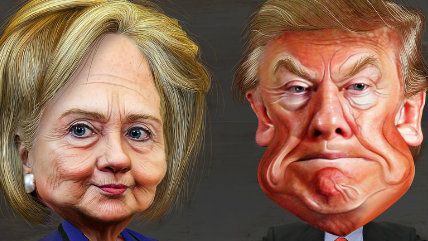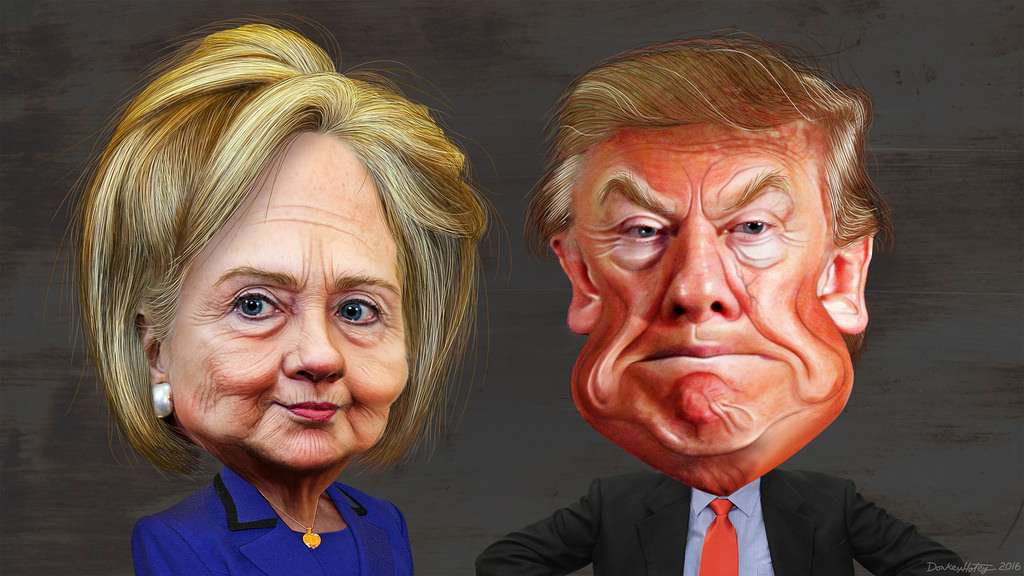Clinton and Trump: Triumph of the Baby Boomers?
Obama was born in 1961. But instead of moving toward a relative youngster, voters are going for candidates born in the 1940s.


Neither the Trump fans nor the Hillary Clinton fans want to hear it, but the two politicians have more in common than either of the presidential candidates wants to acknowledge.
He gave money to her foundation and her campaigns. Federal campaign finance records indicate that Donald Trump gave at least seven separate campaign contributions to Clinton's Senate and presidential campaigns, totaling $6,400. She attended his January 2005 wedding.
This is somewhat embarrassing for both of them. In the Republican primary campaign, Sen. Ted Cruz has used the contributions as a bludgeon to criticize Trump as less than an authentic conservative.
In a general election campaign, if Trump is the Republican nominee and Clinton criticizes him, as she did recently, as "un-American," Trump may point out that she was perfectly happy to take his money and even to attend his wedding. If Trump is, as many Democrats, most of the so-called mainstream media, and even some more excitable Republicans would have it, the second coming of Hitler, a past history as a longtime big donor to Clinton campaigns and charitable initiatives seems a strange back story.
Nor is the financial connection the only overlap between the two candidates. They both are trying to hide documents that their opponents would like them to disclose. Clinton wants to keep the transcripts of her big-money speeches to Goldman Sachs a secret. Trump wants to keep his tax returns a secret. Perhaps they can make a pact to disclose both documents on the same day—maybe late on the Friday of a holiday weekend in the summer?—so the negative impact of the news is neutralized and no one pays much attention.
Both candidates say they oppose President Obama's Trans-Pacific Partnership Trade deal, though some people expect Clinton to reverse course and support the deal if she takes office. Is a campaign position a lie if no one believes it to begin with?
Both candidates are running crude campaigns of demonization, blaming scapegoats for America's problems. Trump blames Mexican immigrants, Muslims, and Washington politicians. Clinton blames oil companies, pharmaceutical companies, and Wall Street.
Both candidates are cultivating the votes of unionized government employees. Trump is wooing the police, while Clinton is allied with teachers.
Neither Trump nor Clinton is at all serious about entitlement reform.
Both candidates want to build walls around America. Trump's famous wall would keep immigrants out. Clinton's "exit tax" would prevent companies that want to leave from being able to get out.
The hair of both candidates is the subject of endless popular fascination and, at times, derision. They both have children who married Jews whose fathers (Ed Mezvinsky, Charles Kushner) spent time in prison. Both of the children married people whose families were in their business; Chelsea Clinton married the daughter of a congresswoman, while Ivanka Trump married the daughter of a real estate developer. Both Trump and Clinton call New York home but also spend time at residences in other places. Both candidates are very rich compared to most other Americans.
Age-wise, they both are a kind of last gasp of the Baby Boom generation. I just finished reading an advance copy of Michael Kinsley's Old Age: A Beginner's Guide, and he points out that while seven members of the World War II generation were president, for a total of 32 years, "the boomers had just two presidents, Clinton and Bush the younger, over sixteen years, before the citizenry said, 'That's enough. Let's move on.'" Kinsley apparently did not account for the possibility that, after President Obama, who was born in 1961, the voters would turn the clock backward instead of moving ahead to a relative youngster like Ted Cruz or Sen. Marco Rubio. Trump was born in 1946; Hillary Clinton was born in 1947.
I'd had hopes that Michael Bloomberg would get into the presidential race and provide voters with an option other than Trump or Clinton, but Bloomberg decided to stay out of the arena.
Maybe the similarities between Trump and Clinton are an encouraging sign that, for all the polarization in America, there's more room in the middle of the road than anyone had thought. Or maybe Kinsley is on to something, and after four years of either one of these characters, the electorate will be ready to move on. Some of us feel that way already.


Show Comments (59)